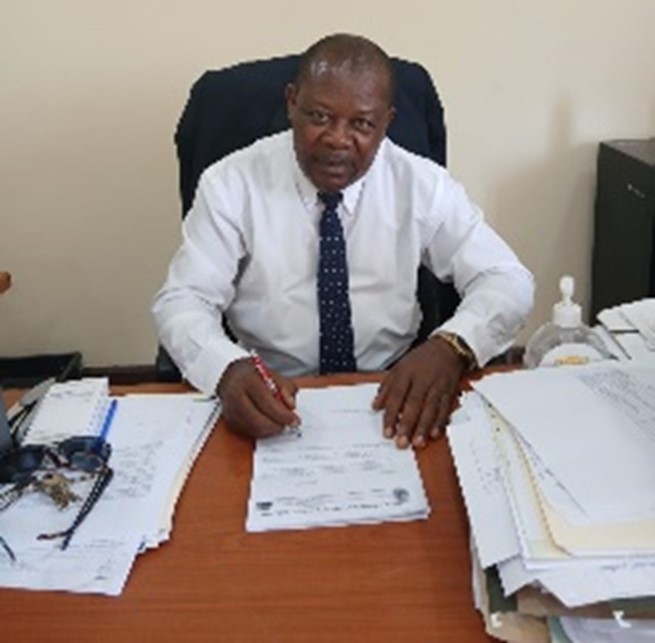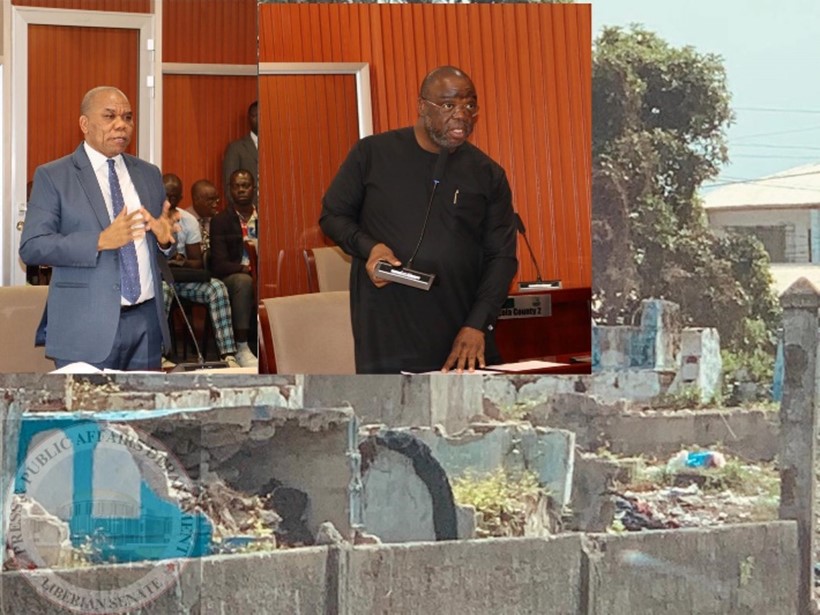The Environmental Protection Agency (EPA), in collaboration with the Global Environment Facility (GEF) will on Tuesday, February 13, 2023, commence a four-day Global Environment Facility Constituency Workshop (ECW) here in Liberia; Cynthia Quinisier reports.
The constituency workshop will be followed by a two-day National Dialogue from February 19—20, 2023 at Cape Hotel in Monrovia.
Speaking at a press conference on February 1, 2024, the Environmental Protection Agency’s Executive Director, Prof. Wilson Tarpeh, said the workshop will discuss current issues relating to climate change, biodiversity, desertification, international waters, chemicals and other related environmental issues affecting Liberia.
According to him, the workshop is expected to bring together GEF agencies and focal points, convention focal points and CSOs, as well as other key stakeholders to discuss and review policies and procedures and share lessons and experiences from the development and implantation of GEF projects and their integration within national policy framework.
The ECW was competitive among the constituency member states in 2022, and by March 2023 it was announced that Liberia and Ivory Coast were the two selected countries amongst which one should be chosen. Fortunately, Liberia was selected to host the ECW. Several schedules were put up but changed due to different national circumstances, including the country’s elections.
He said in October 2023 the GEF requested that the meeting be relocated to another country due to the electoral process in Liberia. However, Liberia appealed because the meeting would be a very good beginning for the in-coming government.
The appeal was accepted and the meeting has been finally scheduled for February 13—16, 2023, all necessary arrangements surrounding this meeting including hotel accommodation, feeding, foreign travel, etc. have been fully completed by the GEF, in collaboration with the Environmental Protection Agency of Liberia.
The Global Environment Facility (GEF), as the financial mechanism for the Paris Agreement, is the international organization that provides funding to support environmental projects worldwide.
The GEF National Dialogue therefore is a platform for stakeholders in a country to come together and discuss environmental issues, including national objectives, policies, strategies and the means to achieve them.
The dialogue will bring together 70 participants from 38 institutions from government’s line ministries, agencies and commissions, non-governmental institutions, civil society organizations, community members, academic and research institutions, the private sector as well as partners and donors.
The GEF activities are normally a component of national dialogues insofar as the GEF partnership is one of the sources of financing and support available to the country.
Liberia GEF partners include the World Bank, African Development Bank, UNDP, FAO, and Conservation International, and this year’s national dialogue objective is to discuss the US$8.63 million allocation.
The dialogue’s agenda is designed to raise awareness of national stakeholders about the GEF to build capacity for effective implementation of Liberia’s GEF portfolio, as well as strengthen the GEF national coordination mechanism through the exchange of ideas and best practices.
“It will also identify and elaborate national priorities under the GEF thematic areas for the remaining period and discuss preliminary areas of interest for GEF,” Prof. Tarpeh stated.
The dialogue is expected to attract and bring together over 70 participants from sectorial line ministries, agencies, academic institutions, international and national non-governmental environmental organizations, representatives of civil society groups, and superintendents from the 15 political subdivisions.
At the end of the dialogue, participants will identify projects for possible funding under the GEF System of Transparent Allocation of Resources (Star), GEF8, which is US$8.63 million.
The distribution is as follows: climate change, US$2 million, land degradation, US$2 million, and biodiversity, US$4.63 million.







